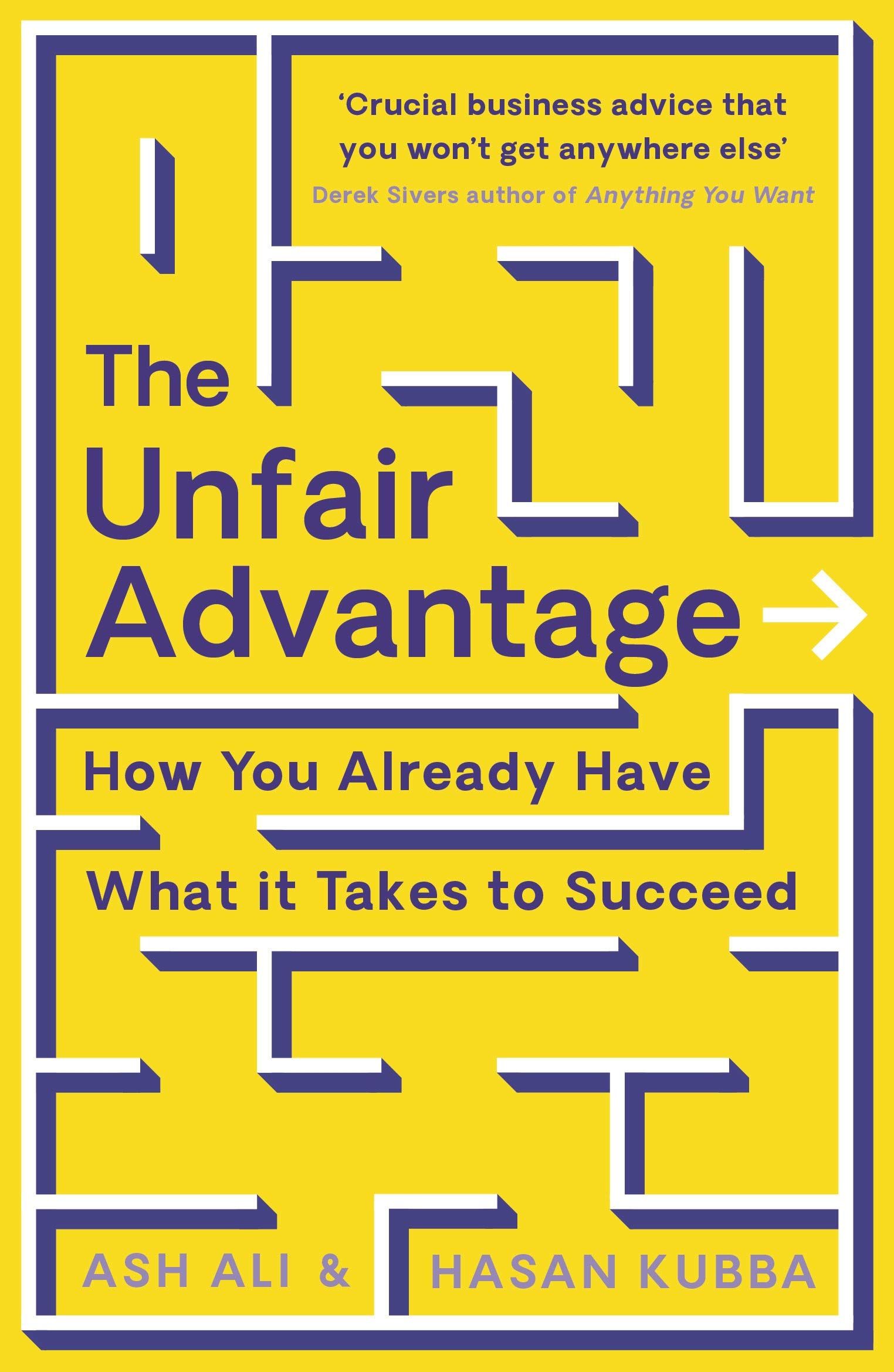The Unfair Advantages of life - Part 2
During my bachelor's degree, I was broke for the most part. I didn't have enough money to pay for public transport to attend college. I would always hitchhike to college. My cousins and friends pondered my luck (how I found a ride almost always). I think I know the answer to that question now.

In the last part, I wrote about money and intelligence & insight as unfair advantages. In this part, I will elaborate on the remaining three groups of unfair advantages in the MILES framework. But the last week was quite eventful, and I am compelled to share it with you here today. When I finished writing the first part, I tagged the book's authors in my tweet with a mischievous hope of having a wider reach.
Thanks for the book @Ash_Ali and @StartupHasan #unfairadvantage
— Amith Narayan (@AmithNarayanPhD) May 20, 2021
It is a two part summary of best-seller book The Unfair Advantage written by Ash Ali & Hasan Kuba. Do share and subscribe (it's free) if you like what you read...😊 https://t.co/YYekMMyjOr
While both Ash & Hasan were kind enough to reply to my tweet, Hasan went to do this.
Brilliant write up! Thanks for sharing Amith! Looking forward to part 2 😊 https://t.co/3tdaI0aS2v
— Hasan Kubba (@StartupHasan) May 21, 2021
I took a chance. The universe rewarded me with a kind gesture. It never hurts to take chances.
The annual UK Business Book Awards declared The Unfair Advantage as the year's best business book in the same week. I was happy that a book I decided to summarize and recommend to my readers had a phenomenal impact on others.
With those updates, let's dive into the book for a second time.
Part II: The MILES framework. Audit (Continued).
Location & Luck
Being at the right location at the right time is a mighty unfair advantage. If you want to build a startup, silicon valley is the place to be. If you're going to act, Hollywood/Bollywood is the place to be. If you want to work in the world of banking and finance, Wall Street/Dalal Street is the place to be. These names are just placeholders. Most countries have their own silicon valleys, wall streets, and Hollywoods for different professions. Half the battles are won by being at the right place. We also have a higher chance of meeting the people who could give us our lucky breaks (increasing luck). Born in Oklahoma to an Iraqi immigrant family, Huda Kattan, owner of Huda Beauty, made two critical choices related to location that changed her life forever. She was interested in numbers and finance and hence studied business at the university. But after graduating, she realized she had no passion for it. As a kid, she was interested in makeup. She decided to attend the Joe Blasco Makeup School in Los Angeles, California. The makeup school was the best in the country and located near Hollywood, a world of glitter and glamor. She made inroads gradually by becoming a makeup artist for celebrity clients. Because of middle-eastern background, she decided to move to Dubai. She felt that her makeup aesthetic would significantly impact the darker/middle eastern look (similar to hers). She launched false lashes as her first product. The product went on to become a global hit (even Kim Kardashian wore it). Today, Huda Beauty is a billion-dollar enterprise.
Being lucky is the most controversial, hotly debated unfair advantage of all. I remember several conversations with family and friends where we cannot agree on the impact of luck on people's lives. Hitting a lottery jackpot of $200 million might be plain dumb luck, but there is a way to improve our luck for most other things. Research says luck is a matter of mindset. In layman's terms, luck is a strange force of the universe. It is an event-causing mechanism that none of us have control over. But, when we realize luck as a chance event that can be modeled in probability, we can begin to ask, how do I increase my chances? The most obvious answer is to take more chances.
In his book The Luck Factor by Prof Richard Wiseman, the author suggests we could improve our luck by doing these things: maximizing chance opportunities, trusting our intuition, expecting to be lucky, and turning even bad luck into good luck. During my bachelor's degree, I was broke for the most part. I didn't have enough money to pay for public transport to attend college. I would always hitchhike to college. My cousins and friends fondly envied and pondered my luck (how I found a ride almost always). I think I know the answer to that question now. I always expected to be lucky (as I had no other choice). Some days, I would walk several miles without luck, and somedays I would find a direct ride from home to college. By the third year, a friend of mine was kind enough to pick me up and drop me back every day. When I wrote the first part of this book summary, I took a chance and tagged the authors in my tweet. I was lucky that they responded. If I hadn't taken the opportunity to tag them, they might have never found me. So take chances and expect to get lucky.
Education & Expertise
Being educated is a crucial unfair advantage. Having a formal education brings three benefits: Knowledge, Network & Signalling. Knowledge is what we are taught (science, math, languages) in school. The network is the crowd you are surrounded by. When you attend a good university, you meet intelligent and driven people as fellow students. You will have great professors as potential mentors, a great alumni network who can provide access to plush jobs. Signaling is showing to others that you have skills and intelligence for specific jobs. For example, if you graduate from MIT, people know that, at the very least, you are intelligent, diligent, and talented. Pursuing higher degrees is especially important if you want specialist technical knowledge. Is this a deal-breaker? Not necessarily. Both Ash & Hasan have had very little formal education. Both of them dropped out of college (Ash twice, Hasan once). In their own words, it wasn't in a cool Zuckerberg way. It was when they didn't like school or university. While Ash started working at Staples, Hasan dropped out of university after his first year. His Iraqi parents wanted him to be a doctor or an engineer (like most Indian parents do). Because they lived frugally, there was no financial pressure. However, the societal pressure to get a job soon increased by the day. Expertise came to their rescue.
Expertise is a self-taught process where you learn by deliberate practice. Although both dropped out of college, they both picked up different skills along the way. Ash was building a website, and he needed to learn everything there is to know about making it. Hasan learned about digital marketing (SEO) because he liked its sound, and it showed him a path out of the corporate grind. While Ash learned everything through books while working at Staples, Hasan registered for a course. By deliberate practice, they excelled at what they learned. Expertise means being good at something specific. Developing expertise in an in-demand field is an easy unfair advantage to acquire compared to money. We can consider ourselves experts within the particular domain if we obtain vastly superior results to those accepted by most of the population in the same area. Learning online, books, finding mentors in our fields (2-5 years ahead of us in the career path) can help us develop expertise in an area of our interest.
Status
One of the most profound lines I came across in this book is a quote by La Rochefoucauld: The world more often rewards outward signs of merit than merit itself. Status is our personal brand. It is how others see us (our social standing, appearance, gender, dress, talk). It is our perceived credibility. In school, status is about being cool. In adulthood, it's about outward symbols of success (fancy job titles, fat paychecks, fancy degrees). Status can be due to economic capital (being wealthy), cultural capital (credentials, tastes, hobbies, dressing, speaking), or social capital (network, relationships, and connections). Inner status is our self-esteem and self-confidence. It tells us how much we like ourselves. Our inner status shines through to other people. Most people experience self-defeating behavior to various degrees. Almost everyone procrastinates & struggles to stay motivated. It's essential to take small steps to incrementally get better. Patience is the key. Setting unreachable goals and lofty expectations creates more disharmony inside.
Mental health issues are pervasive these days and are less stigmatized. Getting professional help is vital if the situation is awful. Be kind to yourself.
Finally, status as an idea is riddled with assumptions, prejudices & unconscious biases. For example, women's unpaid labor as homemakers is not valued on par with men's jobs. This is a disastrous consequence of our shared beliefs as a society and how we view status. In short, status is valuable, but being aware of its pitfalls is more critical. Flaunting your degrees, university education, fancy jobs when trying to raise money for a startup makes sense. Bragging about it to your family or friends is irritating and a recipe for lowering your status.
Conclusion
Part III of the book provides a quick start guide to startups. I leave it to the curious reader to explore the subject if it interests them. While most books talk about our strengths, this book accounts for our circumstances too. It helps us find our unfair advantage. The idea is not to have all these advantages. But a good strategy is to partner up with people who have unfair advantages that complement ours. This framework should give us confidence that all of us can aspire to succeed in this world.
Everybody experiences self-doubt. When the path we take is less traveled by, the struggles are more immense. Meaningless comparisons between cousins, friends, relatives add unnecessary stress to our life. Everybody's circumstances are different, experiences are different. Some people see success sooner and some later for various reasons. In one of the defining lines of the book, the authors say this: "Don't compare your behind-the-scenes to everyone else's highlight reel." I strongly agree with it. Happy week ahead
If you like what you read, you should consider subscribing to my email newsletter, where I send an email every week with a few thoughts, reflections, and curated links to interesting books, articles, and podcasts I've enjoyed.
Full Disclosure: Some of the links on this site are affiliate links, meaning, at no additional cost to you, I will earn a commission if you click through and make a purchase. But feel free to not use them.
